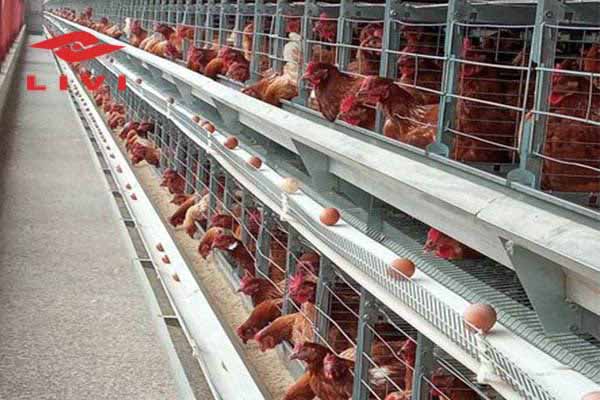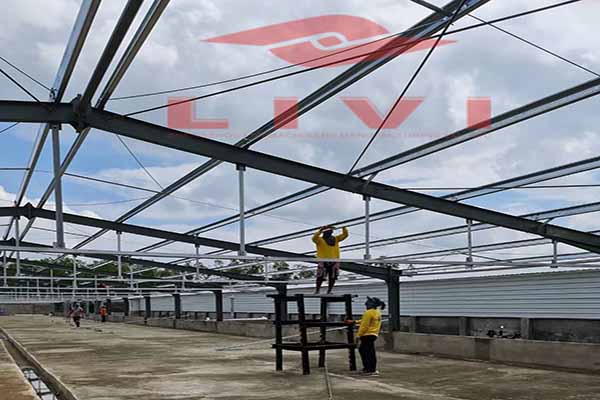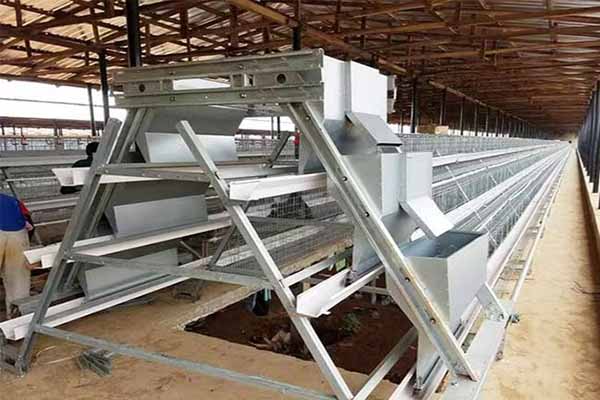Environmental Protection Requirements for Chicken Farms in Tanzania: A Comprehensive Guide
Time : 2025-04-23
As the demand for chicken meat and eggs in Tanzania continues to grow, so does the number of chicken farms. However, with this expansion comes the need for strict environmental protection measures to ensure sustainable farming practices. In this article, we’ll delve into the key environmental protection requirements for chicken farms in Tanzania, offering insights and practical tips for farmers looking to comply with these standards.
Understanding the Environmental Challenges
Before we dive into the specifics of environmental protection requirements, it’s important to understand the challenges that chicken farms in Tanzania face. The main issues include:

- Pollution of water sources due to waste management issues
- Excessive use of antibiotics leading to antibiotic resistance
- Overcrowding of chicken coops, impacting animal welfare and public health
Water Resource Protection
Water is a critical resource, and it’s essential for chicken farms to manage it responsibly. Here are some key requirements:
- Water Source Protection: Chicken farms must ensure that their water sources are not contaminated by farm waste. This involves proper waste management practices and regular water quality testing.
- Efficient Water Use: Implementing water-saving technologies and practices, such as automated watering systems and rainwater harvesting, can significantly reduce water usage.
- Wastewater Treatment: All wastewater produced on the farm should undergo treatment before being discharged. This can be achieved through the use of settling ponds or anaerobic digesters.
Waste Management
Proper waste management is crucial for environmental protection. Here’s what you need to know:
- Manure Management: Collecting and composting chicken manure can be a valuable source of organic fertilizer for crops. It’s important to follow proper composting practices to ensure that harmful pathogens are destroyed.
- Biodegradable Packaging: Using biodegradable packaging materials can help reduce the environmental impact of waste from chicken farms.
- Recycling: Establish a recycling program to manage paper, plastic, and other recyclable materials on the farm.
Animal Welfare and Health
Animal welfare is closely linked to environmental protection. Here are some key considerations:
- Space Allocation: Ensure that each chicken has adequate space to move around and avoid overcrowding, which can lead to disease and stress.
- Health Management: Regular health checks and vaccination programs are essential to maintain animal welfare and prevent the spread of diseases.
- Antibiotic Use: Follow responsible antibiotic use guidelines to minimize the development of antibiotic resistance.
Energy Efficiency
Energy consumption on chicken farms can be significant. Here are some ways to improve energy efficiency:
- Solar Power: Investing in solar panels can reduce the farm’s reliance on grid electricity and lower operational costs.
- LED Lighting: Replace traditional lighting with LED bulbs, which are more energy-efficient.
- Energy-Saving Appliances: Use energy-efficient appliances and equipment on the farm.
Compliance and Certification
Complying with environmental protection requirements in Tan zania is not only about meeting regulations but also about gaining credibility and market access. Here’s what you need to do:
zania is not only about meeting regulations but also about gaining credibility and market access. Here’s what you need to do:
- Understand the Regulations: Familiarize yourself with the local and national environmental regulations governing chicken farming.
- Seek Certification: Obtain environmental certifications, such as the Tanzania Eco-Friendly Chicken Farming Certification, to demonstrate your commitment to sustainable practices.
- Regular Audits: Conduct regular environmental audits to ensure compliance and identify areas for improvement.
Conclusion
Environmental protection is not just a legal requirement but a moral obligation for chicken farmers in Tanzania. By implementing the right practices and techno logies, you can contribute to a healthier environment, improve animal welfare, and ensure the long-term sustainability of your farm. Remember, taking care of the environment today will pave the way for a brighter future for your farm and the country.
logies, you can contribute to a healthier environment, improve animal welfare, and ensure the long-term sustainability of your farm. Remember, taking care of the environment today will pave the way for a brighter future for your farm and the country.
For more information on environmental protection requirements for chicken farms in Tanzania, consider visiting the following resources:











